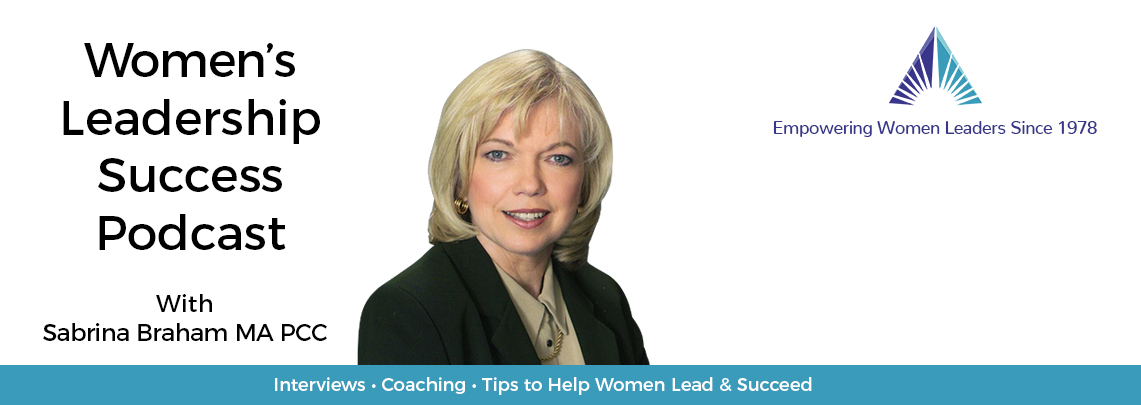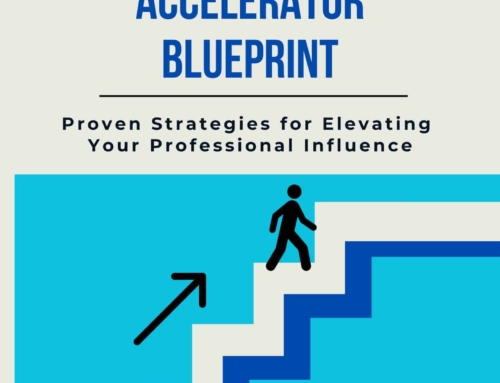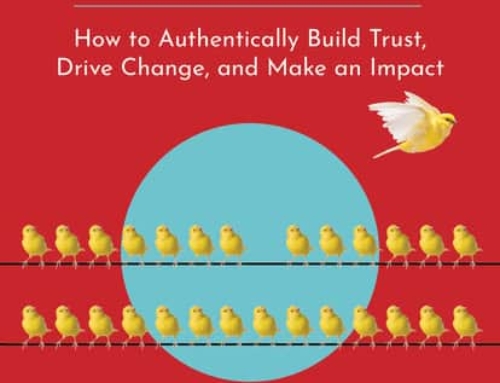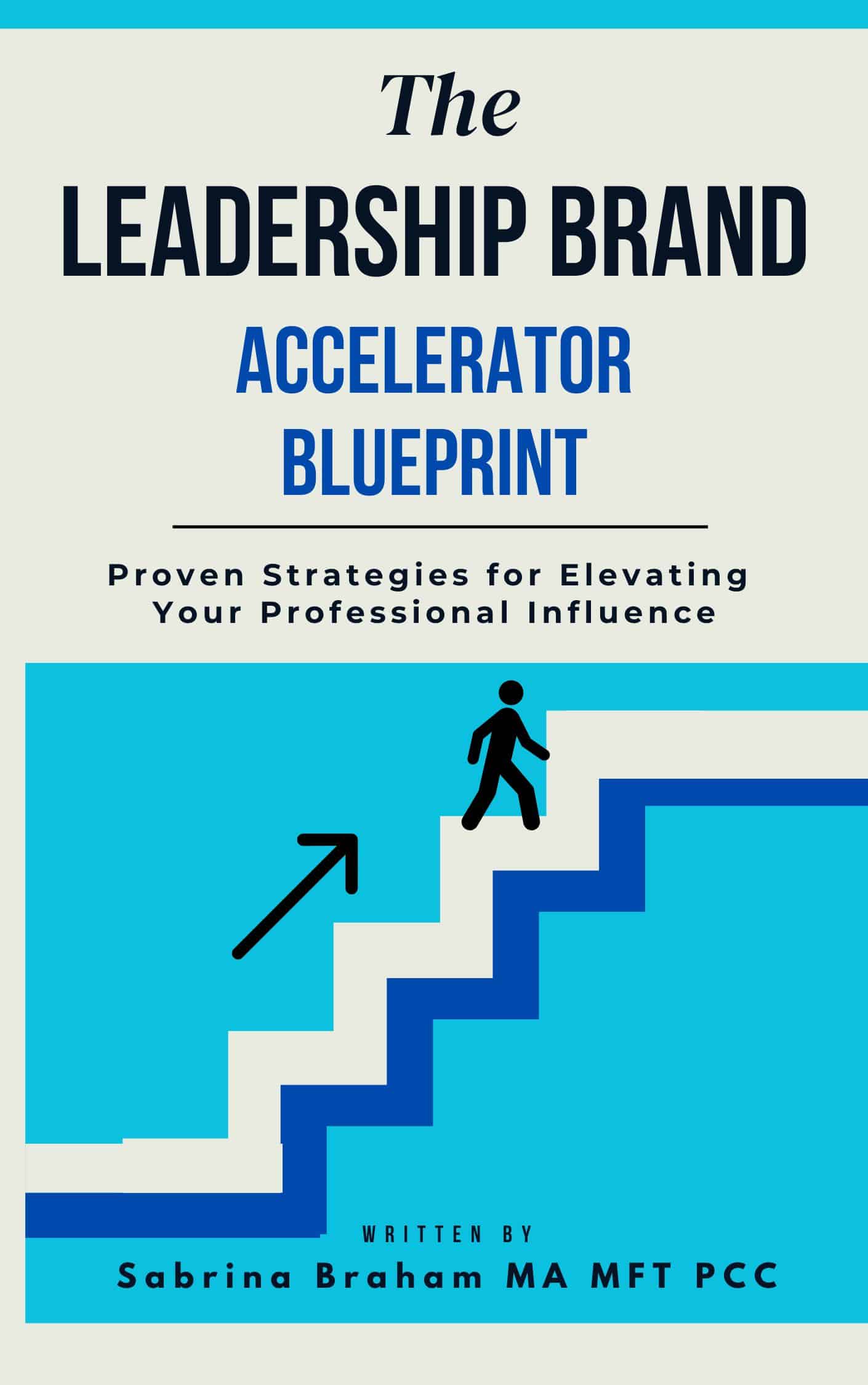The Paradox of Promotion for Women
How Women Can Get Promoted and Enhance Career Skills
Women’s Leadership Success Podcast Show Introduction
 Welcome to Women’s Leadership Podcast, showing you how to influence people, improve your performance, and advance your career, brought to you by wome leadership and career expert Sabrina Braham, and WomensLeadershipSuccess.com.
Welcome to Women’s Leadership Podcast, showing you how to influence people, improve your performance, and advance your career, brought to you by wome leadership and career expert Sabrina Braham, and WomensLeadershipSuccess.com.
Here is your chance to meet women trendsetters leading the way to success, accomplishment, and balance in business and life, no matter if you’re a manager, CEO, or entrepreneur. Join Sabrina for coaching and no-nonsense advice to improve your career and bottom line.
If you want to listen to this important Women’s Leadership Success Podcast, click here.
SABRINA BRAHAM: This is Sabrina Braham with Womens Leadership Success.com. In this segment of Women’s Leadership podcast, we will be discussing how to help your career with our guest today, Barbara Plumley, Vice President of Operations of Health Care Partners. Welcome, Barbara.
BARBARA PLUMLEY: Thank you.
SABRINA BRAHAM: Tell us a little bit about your company and what you do there.
BARBARA PLUMLEY: Well, I’m a vice president for one of the regions’ — Health Care Partners Medical Group is an organization that spans five areas in Southern California, and the area I’m accountable for is the San Gabriel Valley. And as the Vice President of Regional Operations, I work along with the Regional Medical Director. And we’re accountable for the delivery of health care to over 80,000 patients, as well as for the fiscal responsibility of the region for assuring patient satisfaction, satisfaction with the delivery of care, employee satisfaction and the growth and development of the region.
SABRINA BRAHAM: How many employees do you have?
BARBARA PLUMLEY: Right now there are approximately 500 employees in this region.
SABRINA BRAHAM: Okay and you’re not very old. I mean you’re pretty young to be in that position.
BARBARA PLUMLEY: Well, thank you, I would agree.
SABRINA BRAHAM: I’ve known you since you were a child, so I know that you’ve done incredible things with your life and have been very successful. And I’m wondering if you could help the women that are listening understand how you started out and how you were feeling then. And what’s different now? Where did you first start your career? What were you doing?
The Paradox of Promotion for Women – Career Tips for Women
What I Discovered to Develop my Career
BARBARA PLUMLEY: Well, it took me awhile to actually land in the health care arena. I actually graduated with an undergraduate degree in sociology, and did some work in those areas, and was not really finding where I wanted to be, and decided to go for a Masters of Science in health care administration, and through that, connected of course with people in the field; and started out working with a non-profit organization who did a lot of substance abuse and low-cost MediCal, and found myself immediately in an administrator position. And it’s really something to go to school and learn all the didactic stuff and then it’s another thing to go into the work place and to be able to deliver.
I say the primary thing is the ability to affectively work with people and produce results. And there were times along the way where — I think when you’re new, you’re thrilled, you’re excited, there’s some trepidation, there’s lots to learn – and I found myself really wanting to always do a good job. And when you’re really driven to do a good job, then all of your actions are consistent with doing what ever it takes to that, meaning; you might find yourself spending extra hours there and feeling like you need to make sure that no piece of paper crosses your desk that you haven’t read it thoroughly and can explain it. And that works fine for awhile until as you become successful, because of your ability to produce those results, those things actually turn into burdens; and what used to exciting and enthralling and engaging, becomes like, “How am I going to get through this? How am I going to get through the day? How am I going to deliver what I’m committed to delivering?”
HOW SHE CHANGED FEAR INTO A NEW PERSPECTIVE
SABRINA BRAHAM: Well that must have been scary? How did that feel when all of a sudden you didn’t like what you were doing anymore?
BARBARA PLUMLEY: Well, it’s one of those things. It’s gradual; it’s almost like it can creep up on you. I think human nature being what it is, you kind of look at yourself like, “Am I doing something wrong? Is there something that I should being doing more effectively?” I could remember a family member saying, “Gosh, you’re just working too hard, you need to work more — you’re in a position where you can determine how many hours you should work.” And then, it’s like, “Yes, but I have a job to do — when there are people counting on me to deliver that job.” And my commitment was always that, I would be of service to those who reported to me. And that meant, in my world, that I needed to have an answer for just about anything they might come to and need from me.
SABRINA BRAHAM: Wow, what a burden.
BARBARA PLUMLEY: Yes. That’s the way it finally was.
SABRINA BRAHAM: So, what was the turning point? What changed that for you?
BARBARA PLUMLEY: Actually what changed it was when the joy and the excitement of being able to really spend time with the people I work with and appreciate them got to the point where I thought, “I can’t answer another question, I don’t need another person coming to my door because I have no more time to find any more answers,” and I felt like I wasn’t able to deliver to them, and that there might be something wrong with me that I couldn’t do this.
SABRINA BRAHAM: Wow. So you hit a wall.
BARBARA PLUMLEY: Yeah, I actually did. I don’t know that I recognized it as that. Again it’s just that it was like — you start looking for, “Where’s the relief valve? What can I do to –?” And you don’t see a window, you don’t see a door, you don’t see anything. It’s kind of like, “No, I have commitments there, and no, I have commitments here, and it’s not that I want to leave here,” but, it’s kind of like you don’t know what the answer is.
SABRINA BRAHAM: So, what changed? What did you end up doing?
BARBARA PLUMLEY: I was blessed, I will say, with a set of circumstances — and I really don’t believe in coincidences — I had a friend who I was helping out. I was accompanying her one day to a seminar. She was a new mom and it was a parenting seminar. Part of the seminar was — the person leading it asking the question, “Well, how is your life?” And I considered that and I thought, “Gosh, on a scale of one to ten, I’d say my life was a six.” A little bit above average, nothing really horrible in it. I’m doing well, I’m successful and I thought, “Well it’s a six.” And just kind of let it go at that. And she jotted a phone number down and handed it over to me and said, “If you’re ever interested in your life being more than a six, you might call this number.”
And she had given me a number for an organization which is an international organization. And it’s the study of ontology. And it’s Landmark Education. And she said, “If you’re interested in anything more than a six, give them a call.”
So, for about three days, I drove around with that number in my purse and one of the days that I had made about my eighth trip down one of the freeways in Southern California., I kept thinking, “There’s got to be something else. I don’t know what it is, but there’s got to be something else.” I picked up the phone and I called. And I talked with someone there. Without really knowing what it was, or what I was putting myself into, I registered for the course.
The Paradox of Promotion for Women
THE SURPRISING DISCOVERY ABOUT HERSELF
SABRINA BRAHAM: And so what did you learn about yourself?
BARBARA PLUMLEY: The extraordinary opportunity that this was — is that it’s actually three days of an inquiry. You know it’s interesting how much we — you know we get a new car and we read a manual. We know how our car works, but how much do we really know about how we as human beings work? And there is no real manual. So this is just literally an inquiry of why you’ve made the decisions you’ve made through life, kind of looking at why you believe what you believe in terms of what I’m supposed to be doing in life, or really just looking at the conversations that you’ve grown up with that have formed your life the way it is.
And through this inquiry, and other people talking, and so on, I really saw how much I was — actually I’m going to use the word, “used by”, it’s like I had no control over the fact that it was important for me to be needed. And to be needed meant being able to provide other things for other people, that I could support them. And that put me in this never-ending cycle of always taking on more and then needing to know and provide more as my circle of responsibility grew – whether it was on a personal level or a professional level.
SABRINA BRAHAM: Which is a pattern I think a lot of people get into.
BARBARA PLUMLEY: Yes. And the beauty of identifying the exact moment when, as a child, I made that decision was that once you see why you made that decision, you then have freedom from it using you. It really becomes –when there’s an instance, where someone comes and needs something, the “automaticity” of me would before have just said automatically, “Yes,” I might handle it in a different way, and say, “Oh, tell me why you need that? How do you think you might go about it?” And there’s just a whole new freedom around actually choosing what I do and how I do it.
SABRINA BRAHAM: So, you let go of your old way of thinking about how you had to be which was how you had to be needed all the time, to deciding you could choose whether you wanted to be needed or not, and it allowed you to behave differently. Is that what you’re saying?
THE TRANSFORMATION IN BEHAVIOR
BARBARA PLUMLEY: It is. And the fascinating thing about this is they actually call this transformational work. And the reason is that it’s no longer a matter of having to think about it. In the instant of seeing it, it’s transformed the whole issue for me where it’s no longer the case. Once you see it, you have the capacity to say, “Oh, look, there I’m doing that again.” So, it’s not even something that you have to cognitively remember. It just opens it up.
SABRINA BRAHAM: That’s wonderful.
BARBARA PLUMLEY: Oh, it is.
TIME MANAGEMENT
SABRINA BRAHAM: You said that altered time for you. Tell me about that.
BARBARA PLUMLEY: It altered time in that when I was so driven by the need to be able to provide to people, I would spend all my time — and I wasn’t even aware that I was doing it, but I would spend so much of my time, it was automatic; it hit the inbox, I’d have to read it. I’d have to know it, underline it, and make sure that I could speak to it at any moment. Rather than, “Oh, now, look at this, oh, there’s a file that this goes into.” And I know now, that I can resource this when I need it.
SABRINA BRAHAM: Wow, what a difference.
BARBARA PLUMLEY: Huge difference, just the capacity, the freedom that I granted myself because the core of this is really whatever we do, it’s us doing it. It’s recognizing and taking responsibility for our own actions, even if our actions are being workaholics.
SABRINA BRAHAM: Exactly. Also, when you become a vice-president, when you keep moving up the ladder, you really can’t control everything everyone’s doing and read every document. It’s not possible.
Leadership for Women: LEARNING TO SAY NO
BARBARA PLUMLEY: No, it’s not possible, and there’s a whole new arena that opens up also. One of the most telling conversations that I had was actually an administrator who reported to me at the time was — she had called and needed something from me, and at the time I was unavailable to give it, I said, “I’ll have to call you back later.” And I literally felt guilty at that moment. So, I called back later and I said, “I’m really sorry. I was engaged in something else.” And, you know, I thought that maybe my tone of voice had been a little bit like I had ten things going on and it wasn’t the right time. And I just wanted to apologize, and she called me back, and this is again how others see us versus how we see ourselves, and this woman said to me, “I appreciate that there are times that you don’t have it all handled.”
SABRINA BRAHAM: Interesting.
BARBARA PLUMLEY: Yeah, yeah.
DO YOU NEED TO BE SUPERWOMAN?
SABRINA BRAHAM: She didn’t need you to be Superwoman.
BARBARA PLUMLEY: No. And what I thought I was doing in service of others in many times could have actually been hindering them or suffocating them.
SABRINA BRAHAM: Interesting, very interesting.
HOW TO BE OF SERVICE TO YOUR EMPLOYEES
BARBARA PLUMLEY: So, then, when I had the capacity to no longer to choose — to spend my time doing the things the way I had been doing, then I found I actually got back to the essence of who I am in being in service to people. And my time now is spent in meeting monthly with employee focus groups, a couple times a month with administrators, two times a month with different groups of middle managers. The joy, the exhilaration, what I thrive from is working with people at that level – the collaboration, the team-work, and also altering the perspective of that giving people other things to do is not a matter of just “turfing” stuff. It is really looking at what growth and development they want. And the beauty of — they want to learn a new area and start working that, and I have the capacity and the ability to delegate to them so that I have more freedom to grow and develop where I want to go, and they’re growing and developing where they want to go.
SABRINA BRAHAM: Wow. That’s incredible. Such a wonderful gift that you’re giving to people.
BARBARA PLUMLEY: It works all the way around because it’s a gift to myself too.
SABRINA BRAHAM: Yeah, it sounds like it’s very nourishing for you.
BARBARA PLUMLEY: Yes.
TIPS FOR PERSONAL GROWTH for WOMEN ENTREPRENEURS and CAREER WOMEN
SABRINA BRAHAM: You had mentioned that you had a commitment to your own personal growth. How do you do that now?
BARBARA PLUMLEY: Well, part of my growth continues with my involvement with Landmark Education. I do some coaching within different courses there. And I actually participate in ongoing growth and development courses that I take. My growth and development also comes from working with the employees here at work. And spending my time mentoring them – really engaging them in looking at where they may be stopped. I do some coaching outside of Landmark and outside of my work. And it really is about the human to human connection. The paradigm I function from at work is that my title and my position disappear.
SABRINA BRAHAM: That’s very interesting. Can you explain that?
ARE PEOPLE INTIMIDATED BY YOU?
BARBARA PLUMLEY: Yeah. Especially when you’re new in management, I’ve found, at least, that I was oblivious to the impact that a title would have on other people. As I go around and do sight visits at our sights and so on, there are some sights where the staff are like, “Oh, Barbara’s here.” And we just chit-chat and, “How are things going?” and “What’s your family been doing?” and so on. And then there are other sights where I may not be that familiar to them. I think it may have to do with the size of the sight or how frequently I get out.
But when I start hearing like, “The vice-president is coming.” To me, that is not how I choose to be viewed. I find that titles can get in the way of people really being able to honest, to express openly what works and what doesn’t work for them, and in that regard, impedes growth and the development of the individuals as well as reduce any results that you want to produce as a team.
SABRINA BRAHAM: So, how do you deal with it? I mean, the reality is, you are the vice-president. How do you get people more comfortable to be honest with you?
BARBARA PLUMLEY: Part of it is just in face to face meetings when I’m with them. One of the most extraordinary reflections of that is we’ve recently convened a patient satisfaction team with representatives from each of the practices varying from medical records clerk, to administrator, to nurses – all areas represented. It’s really about whenever you sit down with a group, setting the stage for everything you say is important. Everything that you bring is a gift.
Every complaint that you have is really a piece of gold that underneath it, there is a commitment you have. And you may not be able to articulate your commitment in a way that I can hear it yet because of how it sounds as a complaint, but I know that there’s a commitment under there. So what is it that’s not working for you? And that we can have work for you? There’s nothing you can say that’s going to be wrong. It’s all about the workability for all of us.
SABRINA BRAHAM: Wow. That’s beautiful. You hold a container that people can be honest and that there’s something of value in what they say no matter how they say it.
BARBARA PLUMLEY: Absolutely. My effectiveness of what I do is contingent on the people that I work with — feel free to do their jobs, to have their needs met, and that we all really respect, enjoy, and appreciate each other.
HOW TO GET PROMOTED: TIPS FOR DEVELOPING YOUR EMPLOYEES
SABRINA BRAHAM: Wow. Fantastic. So, your commitment to your own personal growth is also a commitment to all the people that you know too.
BARBARA PLUMLEY: Yeah. Absolutely. It’s interesting because one of the ways that I share that is, — Gosh, I think it has been for about four years now, I write a newsletter called The Monthly Spark. It’s an inspirational newsletter. My whole purpose in the newsletter, when you go into the sights — it’s really that you know me as human being. I will write about embarrassing moments, I will write about times when I caught myself being negative about something or how I’m going through life.
Am I going through life attentive to life at every moment? Am I present in what I’m doing? Am I engaged or do I find myself in a fog? One of the greatest compliments I ever received from an employee was to say that they felt like they really knew me through The Monthly Spark, that they felt like I was one of them.
SABRINA BRAHAM: Wow. That’s incredible.
WOMEN LEADERSHIP AND SUCCESS TIP
We’re coming to the end of our show here, and I have a couple of questions I want to ask you. So, how is your life on a one to ten now with ten being the best?
BARBARA PLUMLEY: My life is a ten.
SABRINA BRAHAM: All right. I love it. So is mine by the way. What’s the one tip you could give to a woman — she’s just starting out in a company, or she’s a top-level person, what success tip would you give her?
BARBARA PLUMLEY: To identify someone who you respect, admire, appreciate who you would ask to be your mentor. I never had a mentor. I really even to this day don’t know what it would truly be like to have one, and yet, the mentoring relationship, as I mentor others, is and extraordinary relationship. And when you’re mentoring others, believe me, there is an even greater return on the mentor side.
SABRINA BRAHAM: So, either get a mentor or be a mentor either way it’s going to be valuable.
BARBARA PLUMLEY: Absolutely.
LIFE BALANCE TIP FOR WOMEN
SABRINA BRAHAM: What tip would you have in terms of keeping your life balanced, cutting down stress? What helps you?
BARBARA PLUMLEY: It really is about the relationships that I have in life, and who I’m being in cultivating those relationships. The fact that I walk into work everyday and work with a team of people where we can sit and laugh ourselves silly, we can work hard as can be, we can count 100 percent on one another, we trust, admire, and respect the differences that we bring to the table, and we actually truly enjoy spending time together. When your day is filled with those kinds of relationships, you can get through anything.
SABRINA BRAHAM: Wow. That’s a wonderful way to end this conversation, and I want to thank you so much for being on our program.
This is Sabrina Braham with Women’s Leadership Success. Please join us for another episode next week. Thank you very much. Goodbye.
Thank you for joining your host, Sabrina Braham, on another Women’s Leadership Podcast. If you have questions or comments, you can email her at Sabrina@SabrinaBraham.com.
Since 1989 Sabrina and her team have helped hundreds of women managers, business leaders, and entrepreneurs with valuable trainings, articles, books, and executive coaching. For additional tips, interviews, and free access to Great Leaders Today mini-course, visit www.WomensLeadershipSuccess.com.
Can you relate to the paradox of getting promoted for women?
Are you ready to break through your limitations in your career, leadership and life?
Would you like to move to a more powerful level? Then here are 3 things you can start with right now:
Here are 3 things you can start with now:
1. Call or email me for executive coaching, consulting or training. (Use Contact Form Here)
2. For a free career and leadership assessment from me, Go to Career Development Quiz .Com
3. Help me spread the word to women just like you, tap into the insights you are getting from this show by giving me a review in Apple Podcasts (iTunes), Spotify, Castbox, Podchaser, Podcast Addict & sharing this show in your favorite social media.







